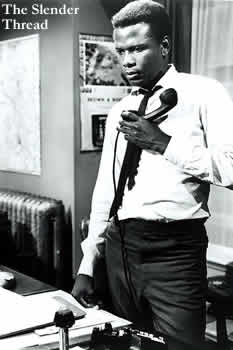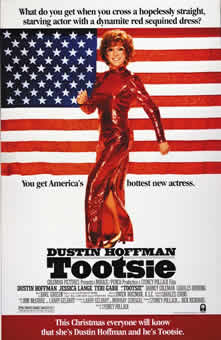His films were loved by audiences, and his personality was admired and respected by his peers, Sydney Pollack was an innovative director, actor, and producer who will not be soon forgotten. The legendary director passed away on May 26, 2008 nine months after being diagnosed with cancer. His calm and collaborative approach to filmmaking made him a standout from his peers and gave him the ability to pull the best out of his cast and crew. His films were successful with both critics and audiences and traces of his daring, humanistic, and meticulous personality were present in all of his works.
Pollack’s career began when he was a student at the Neighborhood Playhouse in New York City where he studied under the late unconventional acting coach Sanford Meisner who himself has nurtured such talents as James Caan, Gregory Peck, Grace Kelly, John Voight, and Tony Randall. He later went on to teach acting at the Neighborhood Playhouse for five years between 1954 and 1959 before deciding to pursue his own career in the film industry. Pollack’s roots as an actor are what undoubtedly have made him so popular with the talent that he has directed over the years. Pollack once stated “I taught acting for many years and without knowing it, that was the real thing that drew me to direct in the first place.”
In the 1960’s Pollack began his directing career in television, directing episodes on a number of shows including the hugely popular “man on the run” drama The Fugitive. Finally in 1965 he directed The Slender Thread, his first feature film which starred legendary actors Anne Bancroft (The Graduate, The Miracle Worker) and Sidney Poitier (Guess Who’s Coming to Dinner, Blackboard Jungle). The film garnered two Oscar nominations, one for best art direction and another for best costume design. The film was innovative and daring as it dealt with the themes of drugs, suicide, and infidelity, all of which were risqué subject matter at the time of its release. The film instantly made Pollack a recognizable name in Hollywood and has since become a cult classic. Pollack went on to direct five more films before the end of the decade including This Property is Condemned starring Natalie Wood (which earned her a Golden Globe nomination for Best Actress), The Scalphunters a comedy Western starring Burt Lancaster, and ending the decade with They Shoot Horses, Don’t They a film that went on to earn 9 Oscar nominations including Pollack’s first nomination for best director and earned Gig Young an Oscar for best supporting actor.
feature film which starred legendary actors Anne Bancroft (The Graduate, The Miracle Worker) and Sidney Poitier (Guess Who’s Coming to Dinner, Blackboard Jungle). The film garnered two Oscar nominations, one for best art direction and another for best costume design. The film was innovative and daring as it dealt with the themes of drugs, suicide, and infidelity, all of which were risqué subject matter at the time of its release. The film instantly made Pollack a recognizable name in Hollywood and has since become a cult classic. Pollack went on to direct five more films before the end of the decade including This Property is Condemned starring Natalie Wood (which earned her a Golden Globe nomination for Best Actress), The Scalphunters a comedy Western starring Burt Lancaster, and ending the decade with They Shoot Horses, Don’t They a film that went on to earn 9 Oscar nominations including Pollack’s first nomination for best director and earned Gig Young an Oscar for best supporting actor.
In 1973 Pollack returned to Oscar worthy filmmaking with The Way We Were starring Robert Redford (whom Pollack had previously worked with on Jeremiah Johnson) and Barbara Streisand. The film earned 6 Academy Award nominations including a nomination for Barbara Streisand for actress in a leading role. The film was a huge hit with critics and also with audiences grossing over 50 million dollars, becoming the fifth highest grossing film of 1973. The film proved to be a turning point in Pollack’s career in the sense that Pollack, up to that point, had a reputation as a dark and edgy filmmaker. The film examines the theme of the true meaning of beauty with one character fitting the societal standard of beauty while the other is a lonely and awkward outcast. The film showed the versatility and depth of his talent proving that he had the ability to tell a deep emotional narrative while at the same time staying true to his own unique and innovative style. He reunited with Redford once again to direct Three Days of the Condor and followed that film with The Yakuza, a neo-noir gangster film with a Japanese setting. Although the Yakuza was not a huge financial success it has become a cult-classic among fans of the genre (and is also a personal favorite of mine). After a series of financial and critical hit-or-misses throughout the rest of the seventies which included the films Bobby Deerfield, the Electric Horseman and Absence of Malice, Pollack returned to top form with Tootsie, which to this day is one of his most loved, praised, and memorable films. His on set disagreements with Dustin Hoffman are still talked about to this day. Fable now has it that it was Hoffman who convinced Pollack to play the role of George Field’s, Michael Dorsey’s agent. Hoffman felt that their tension and disagreements on the set would translate well into the film. Hoffman’s theory proved true  as the onset duo was widely praised and George Field’s revelation on Michael Dorsey’s standing in Hollywood remains one of the most memorable quotes in film history; “nobody in Hollywood wants to work with you either. I can’t even set up a commercial. You played a tomato for 30 seconds; they went half a day over schedule because you wouldn’t sit down.” The film was huge critical and financial success earning ten Academy Award nominations including a nomination for best director. The film went on to gross over 170 million dollars, making it one of the highest grossing films of the decade. After acting in tootsie, appearing in his films and the films of other directors became a trademark of Pollack’s and he has since had memorable appearances in films such as Changing Lanes, Eyes Wide Shut, Michael Clayton, and his last directorial effort The Interpreter. After Tootsie Pollack directed Out of Africa, reuniting him once again with Robert Redford, and also starring Meryl Streep. Once again Pollack submitted a film that would turn out to be a huge critical and financial success winning seven academy awards including Best Picture and earning Pollack his first and only Academy Award for best director, culminating twenty years and 15 pictures worth of brilliant filmmaking. From 1990 until his passing Pollack was a mainstay in the directorial scene, directing such memorable films as The Firm, Random Hearts, and the critically acclaimed documentary Sketches of Frank Gehry.
as the onset duo was widely praised and George Field’s revelation on Michael Dorsey’s standing in Hollywood remains one of the most memorable quotes in film history; “nobody in Hollywood wants to work with you either. I can’t even set up a commercial. You played a tomato for 30 seconds; they went half a day over schedule because you wouldn’t sit down.” The film was huge critical and financial success earning ten Academy Award nominations including a nomination for best director. The film went on to gross over 170 million dollars, making it one of the highest grossing films of the decade. After acting in tootsie, appearing in his films and the films of other directors became a trademark of Pollack’s and he has since had memorable appearances in films such as Changing Lanes, Eyes Wide Shut, Michael Clayton, and his last directorial effort The Interpreter. After Tootsie Pollack directed Out of Africa, reuniting him once again with Robert Redford, and also starring Meryl Streep. Once again Pollack submitted a film that would turn out to be a huge critical and financial success winning seven academy awards including Best Picture and earning Pollack his first and only Academy Award for best director, culminating twenty years and 15 pictures worth of brilliant filmmaking. From 1990 until his passing Pollack was a mainstay in the directorial scene, directing such memorable films as The Firm, Random Hearts, and the critically acclaimed documentary Sketches of Frank Gehry.
Despite his numerous financial success and the respect and admiration that he had earned from his colleagues, Pollack had always steered clear of the Hollywood celebrity lifestyle. Pollack once stated; “I’ve made films in Japan, Yugoslavia, all over Europe, all over the United States, Mexico, but I never have and never will make a film in Hollywood, I personally have never made a film in Hollywood because I don’t want to get up in my own bed and then go to the movie set, and then come home at night to my real life.” This sense of separation from the norm and convention is what made Pollack such an important filmmaker. His films take us out of our element and allow us to examine life from the outside in. Pollack has maintained his artistic merit throughout all of his films but has never forgotten to give the audience the entertaining aspect of films that we all love, “I didn’t grow up thinking of movies as films, or art, but as movies, you know, something you can just do on a Saturday afternoon.”
Intelligent, Modest, and unpretentious, Sydney Pollack was a rare filmmaker and an even more rare human being. The film industry will surely miss Pollack’s mastery of storytelling and the human and down to earth persona that he brought to everything and everyone he met. His films will live on and will inspire filmmakers and audiences of the present and future.

